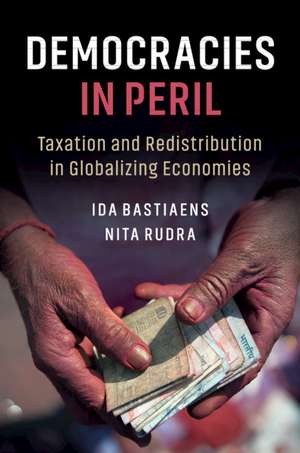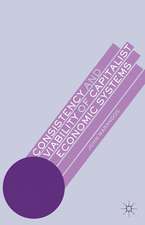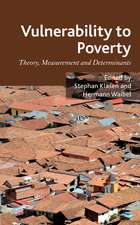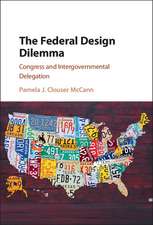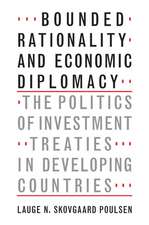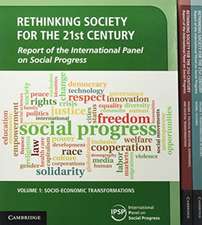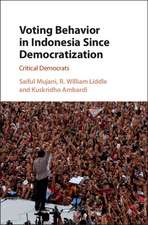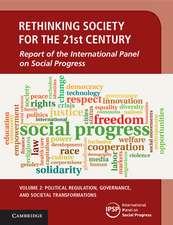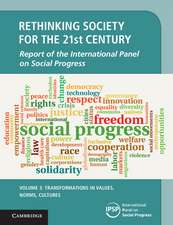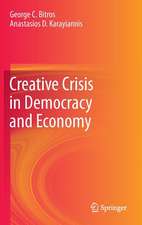Democracies in Peril: Taxation and Redistribution in Globalizing Economies
Autor Ida Bastiaens, Nita Rudraen Limba Engleză Paperback – 24 iun 2018
| Toate formatele și edițiile | Preț | Express |
|---|---|---|
| Paperback (1) | 185.80 lei 22-36 zile | +18.13 lei 6-12 zile |
| Cambridge University Press – 24 iun 2018 | 185.80 lei 22-36 zile | +18.13 lei 6-12 zile |
| Hardback (1) | 680.39 lei 43-57 zile | |
| Cambridge University Press – 4 iul 2018 | 680.39 lei 43-57 zile |
Preț: 185.80 lei
Nou
Puncte Express: 279
Preț estimativ în valută:
35.55€ • 37.21$ • 29.59£
35.55€ • 37.21$ • 29.59£
Carte disponibilă
Livrare economică 10-24 martie
Livrare express 22-28 februarie pentru 28.12 lei
Preluare comenzi: 021 569.72.76
Specificații
ISBN-13: 9781108454889
ISBN-10: 1108454887
Pagini: 342
Ilustrații: 113 b/w illus. 25 tables
Dimensiuni: 153 x 227 x 18 mm
Greutate: 0.47 kg
Editura: Cambridge University Press
Colecția Cambridge University Press
Locul publicării:Cambridge, United Kingdom
ISBN-10: 1108454887
Pagini: 342
Ilustrații: 113 b/w illus. 25 tables
Dimensiuni: 153 x 227 x 18 mm
Greutate: 0.47 kg
Editura: Cambridge University Press
Colecția Cambridge University Press
Locul publicării:Cambridge, United Kingdom
Cuprins
Introduction; 1. The problem and puzzle; 2. Democracies in peril; 3. Empirical assessment: democracies in peril; 4. Why democratic citizens resist; 5. Why firms resist; 6. The repercussions: who suffers?; 7. Democratic country example: India; 8. Conservative authoritarian country example: China; 9. Liberal authoritarian country examples: Jordan and Tunisia; Conclusion; Appendix.
Recenzii
'This book identifies a major empirical puzzle and then provides a novel and compelling explanation for it. Why has tax collection dropped in the developing world recently as globalization has progressed? And why has it dropped most for developing democracies? Trade liberalization created a revenue shock for these governments: the autocratic regimes surprisingly have been best able to find ways to compensate for this, while developing democracies have not. The book issues an important call for policy makers to address this problem before support for globalization and perhaps even democracy are eroded. Helen V. Milner, B. C. Forbes Professor of Politics and International Affairs, Princeton University, New Jersey, and Director, Niehaus Center for Globalization and Governance, Woodrow Wilson School
Bastiaens and Rudra uncover an important and sobering fact: compared to liberal authoritarian regimes, developing democracies that liberalize trade cannot offset revenue losses from lower tariffs. They face a democratic dilemma: apparently, public services must be sacrificed to secure the benefits of openness. The authors help us understand why, and encourage us to probe more deeply the benefits of openness in democracies with weak state institutions. Philip Keefer, Principal Economic Advisor, Institutions for Development, Inter-American Development Bank
'Trade liberalization in developing countries created a massive shortfall of revenue by cutting trade taxes. Bastiaens and Rudra argue that authoritarian regimes rather than democracies succeeded in using coercion and tax-for-policy bargains to raise revenue. Democracies are less able to use coercion and often find themselves in low-revenue traps in which citizens will not voluntarily comply with tax policies because they do not think they will see policy benefits and governments do not have the revenue needed to provide those benefits. It is a sobering but insightful description of how politics shape state capacity to provide public goods that advance human welfare and development - a terrific and important book.' Scheve Scheve, Stanford University, California
'… exceptional, theoretically rich, and empirically dense work … a must read for scholars and students working on questions at the core of both political economy research and democratic theory.' Sarah Berens, Perspectives on Politics
Bastiaens and Rudra uncover an important and sobering fact: compared to liberal authoritarian regimes, developing democracies that liberalize trade cannot offset revenue losses from lower tariffs. They face a democratic dilemma: apparently, public services must be sacrificed to secure the benefits of openness. The authors help us understand why, and encourage us to probe more deeply the benefits of openness in democracies with weak state institutions. Philip Keefer, Principal Economic Advisor, Institutions for Development, Inter-American Development Bank
'Trade liberalization in developing countries created a massive shortfall of revenue by cutting trade taxes. Bastiaens and Rudra argue that authoritarian regimes rather than democracies succeeded in using coercion and tax-for-policy bargains to raise revenue. Democracies are less able to use coercion and often find themselves in low-revenue traps in which citizens will not voluntarily comply with tax policies because they do not think they will see policy benefits and governments do not have the revenue needed to provide those benefits. It is a sobering but insightful description of how politics shape state capacity to provide public goods that advance human welfare and development - a terrific and important book.' Scheve Scheve, Stanford University, California
'… exceptional, theoretically rich, and empirically dense work … a must read for scholars and students working on questions at the core of both political economy research and democratic theory.' Sarah Berens, Perspectives on Politics
Notă biografică
Descriere
Explains the political factors behind the failure of many developing country democracies to benefit from globalization.
